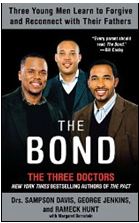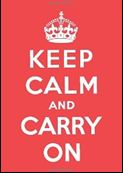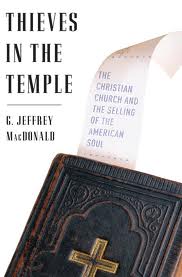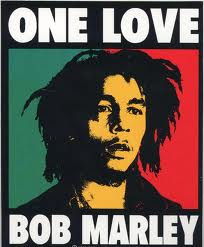“Strategy without tactics is the slowest route to victory. Tactics without strategy is the noise before defeat.”
January Quote: Sun Tzu
Jan 3, 2013 9:52:00 AM / by Tim McCarthy posted in Creativity & Favorites
January Book: “The Bond” by Sampson Davis, George Jenkins, Rameck Hunt, and Margaret Bernstein
Jan 3, 2013 9:48:00 AM / by Tim McCarthy posted in Creativity & Favorites

Editor’s Note: The Bond by the “Three Doctors,” is a continuation of their first book, The Pact. In The Pact, Sampson Davis, George Jenkins and Rameck Hunt tell how they became friends in high school and promised to graduate from college to become doctors. The Bond, co-written by our friend Margaret Bernstein of the Plain Dealer, goes even further into their friendship and ways that they have set out to mentor other children who are growing up in similar homes. Their story resonates as our foundation’s vision is that all low-income and/or first-generation students will have a caring and committed mentor to help get them get to and through college.
January Song: “Right Between the Eyes” by Graham Nash
Jan 3, 2013 9:42:00 AM / by Tim McCarthy posted in Creativity & Favorites

Editor’s Note: After a difficult day with a delusional friend I took a run and this song came on my iPhone. As I listened to the words, I came to realize it was not my job to make him tell the truth; rather, I only need to know my own truth.
December Quote: Charles Lubbock
Nov 29, 2012 5:09:00 AM / by Tim McCarthy posted in Creativity & Favorites
"What we see depends mainly on what we look for."
December Book: “Keep Calm and Carry On” by Mark Reinecke
Nov 29, 2012 5:02:00 AM / by Tim McCarthy posted in Creativity & Favorites

Editor’s Note: If you aren’t an anxious person and/or don’t believe in psychiatry – don’t read this book. But for those of us who suffer anxiety issues, as I do, and believe in paying attention to our mental health similar to working out for our physical health, this is a good summary of reminders. I noticed it on sale at the book store so just picked it up for curiosity and lo and behold, most of the chapters are things I’ve worked on for years and two chapters (5 and 12) gave me new things to practice. This little book will be a holiday gift for my anxious family members and friends. Enjoy.
December Song: “I Wish You Love” by Charles Trenet
Nov 29, 2012 4:33:00 AM / by Tim McCarthy posted in Creativity & Favorites
 Editor’s Note: Probably one of the most oft-covered songs in history, this was originally a French ballad, by the same name, written in 1942. This version is my favorite, covered by Natalie Cole. In terms of meaning, I see it as more than a love song. That is, I see it as the blessing of something more than forgiveness; wishing others well, even after we disagree.
Editor’s Note: Probably one of the most oft-covered songs in history, this was originally a French ballad, by the same name, written in 1942. This version is my favorite, covered by Natalie Cole. In terms of meaning, I see it as more than a love song. That is, I see it as the blessing of something more than forgiveness; wishing others well, even after we disagree.
November Quote: Peter Drucker
Nov 1, 2012 11:27:00 AM / by Tim McCarthy posted in Creativity & Favorites
"Whenever you see a successful business, someone made a courageous decision." Peter Drucker
November Book: “Thieves in the Temple” by G. Jeffrey McDonald
Nov 1, 2012 11:14:00 AM / by Tim McCarthy posted in Creativity & Favorites

Editor’s Note: This book came to me from my work with International Partners in Mission as they are featured in Chapter 3 as “doing right.” But I must tell you, it is (I’m still not done) the toughest read I’ve had in a long time. The writing is good, McDonald’s an award winning newsman but what he makes me think about it very, very difficult. I’m a marketing guy, so I’ve long seen the need for all religions to reach out more effectively to their believers. But McDonald makes me wonder as he outlines just how extreme most religions have become in
November Song: “One Love” by Bob Marley
Nov 1, 2012 11:02:00 AM / by Tim McCarthy posted in Creativity & Favorites

Editor’s Note: The Rastafarian thing always threw me off (religion in which Hailee Salasee was considered the Almighty) but I’ve enjoyed a number of Marley’s pieces, particularly this and Redemption Song. The song also relates to our chicken finger concept, whose honor is carrying on the theme of “one love.” Finally, a dear friend who is struggling right now is a big Marley fan, and so I dedicate this song to him.
October Quote: Helen Keller
Oct 1, 2012 6:40:00 AM / by Tim McCarthy posted in Creativity & Favorites
"I am only one, but still I am one. I cannot do everything, but still I can do something; and because I cannot do everything, I will not refuse to do the something that I can do."




